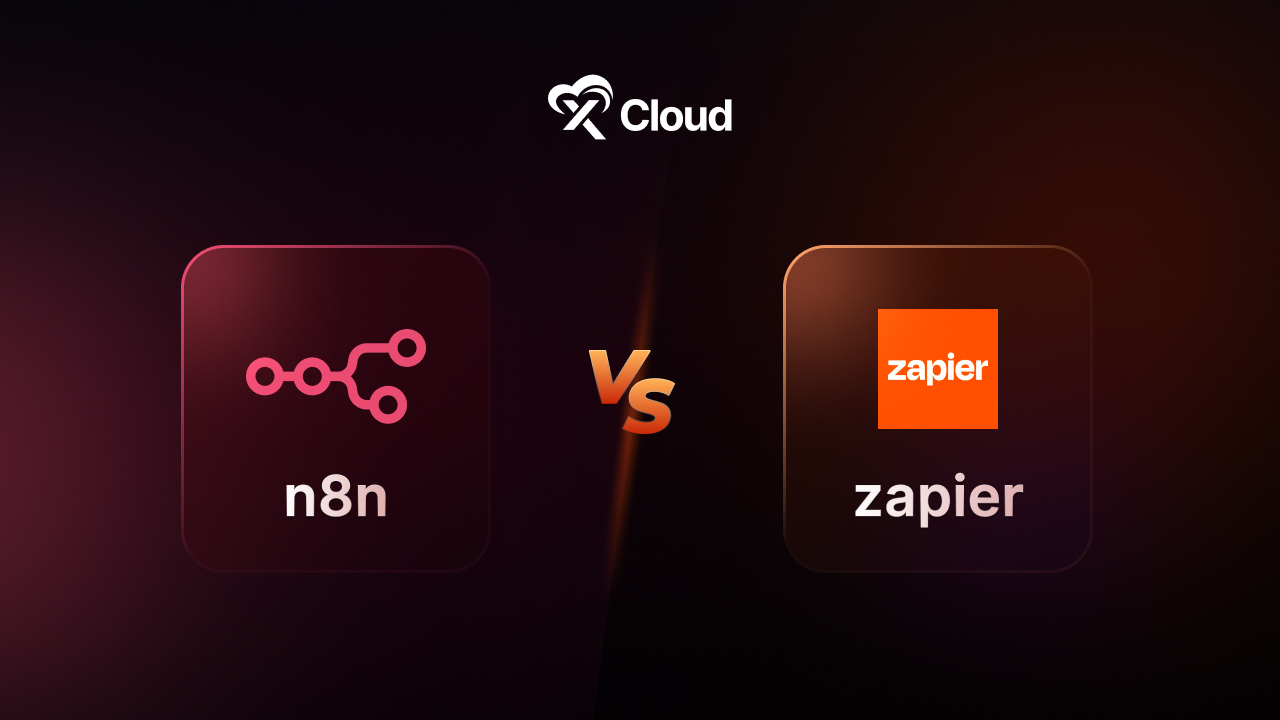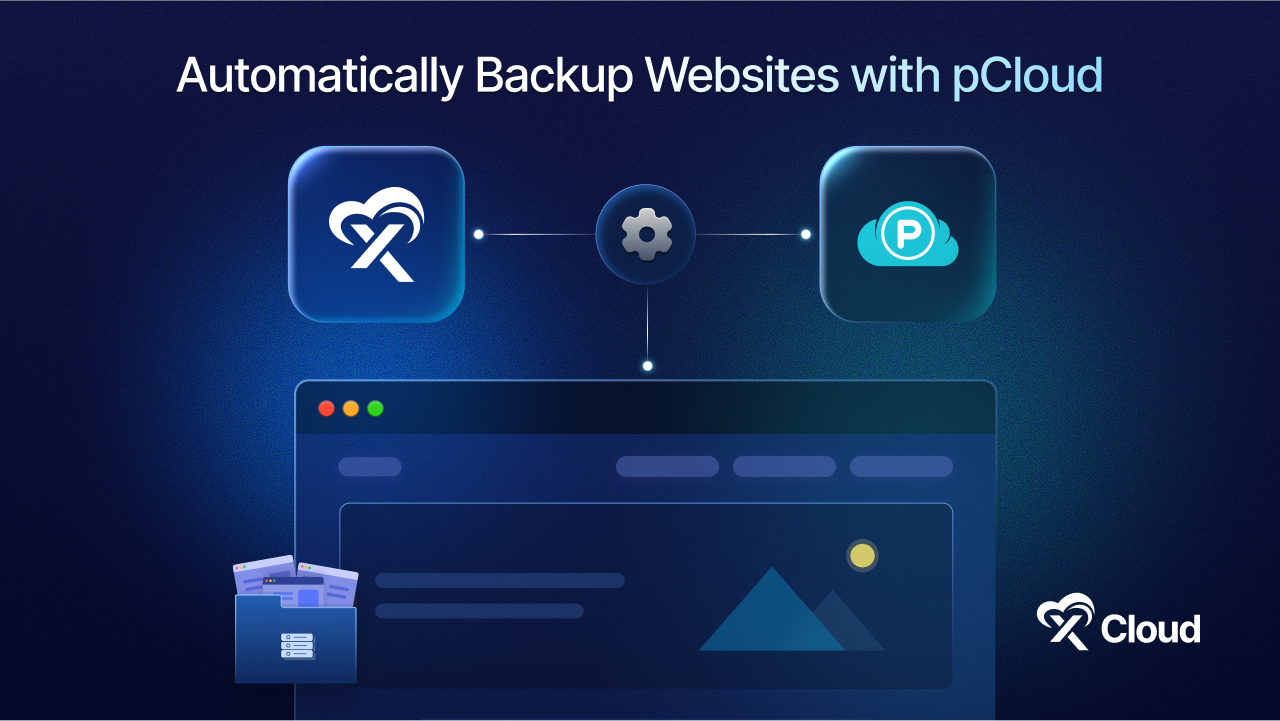Having an online presence and making your website accessible on the internet is non-negotiable for businesses and individuals alike. Web hosting serves as the backbone of this presence, providing the essential technology and resources required for your website to be viewed by visitors online.
With various types of website hosting services available, from shared to dedicated hosting, selecting the right hosting service for your website can significantly influence its performance and accessibility. But which one is the right choice for you?

Understanding the differences and similarities between the various types of hosting providers is crucial and can make a significant impact on the way your website performs online.
Getting familiar with the types of hosting and identifying the best hosting service for websites is the first step to hosting your website and going online. And so, this article aims to explain types of website hosting to help you make an informed decision tailored to your specific needs.
Interested to know more? Let’s dive right in!
💡 What Is Web Hosting: The Complete Know-How
Web hosting is the backbone of making websites accessible to millions across the globe on the internet. It is a service that allows you to publish your website on the internet but at its core, web hosting involves renting or purchasing space on a physical server where all your website’s files and data are stored.
This server continuously works to ensure the stored files are working properly, so whenever a visitor comes across your website and enters your domain – it can seamlessly fetch, transfer and load the relevant data.
And yes, you can host your website on your own server. But you can also do it with a server provider who will ensure smooth operation and utmost security. So, with more than 1 type of website hosting available in the ecosystem, the question often arises ‘Which web hosting is best’?
5 Most Popular Types of Web Hosting:

But before we can answer that – you need to know what different types of website hosting are available:
1. Shared Hosting: Ideal for beginners and smaller businesses, shared hosting involves multiple websites sharing the same server and its resources. It is cost-effective and simple in most contexts but may offer limited performance for high-traffic sites.
2. VPS Hosting: A step up from shared hosting, Virtual Private Server (VPS) hosting provides more power and flexibility, allocating specific server resources to each site even when several websites are sharing space and resources on the same physical server.
3. Dedicated Hosting: For websites requiring maximum control and performance, dedicated hosting offers exclusive server use, ideal for high-traffic and resource-intensive sites.
4. Managed Hosting For WordPress: Tailored specifically for WordPress sites, this hosting includes additional services like automatic updates and enhanced security.
5. Cloud Hosting: A modern approach that uses multiple virtual servers (a cloud) instead of a physical one to host your website, offering easy scalability and reliability depending on your site’s specific needs.
Each hosting type offers different features and benefits, catering to various needs, from basic blog hosting to large-scale business sites. Understanding these options is crucial in selecting the right hosting service for your website, ensuring optimal performance and accessibility.
Types of Website Hosting Services: Explained in Detail
Understanding the diversity of web hosting types is crucial for selecting the right service for your website.
By now, you might have an idea of the various types of web hosting services available for you to choose from. But let us dive deeper into the fundamentals with complete breakdowns of the primary types of website hosting services.

1️⃣ Shared Hosting
Shared hosting is a foundational web hosting service, perfect for those just stepping into the online world or managing small-scale websites. It operates on a principle where a single server’s resources, like memory and processing power, are shared among multiple websites.
This collaborative approach to hosting offers a blend of affordability and simplicity, making it an ideal starting point for many. Here is a closer look at shared hosting:
👉 With shared resources, shared hosting plans can start very low, making it the most economical option.
👉 It comes with user-friendly control panels, such as cPanel, for straightforward site management.
👉 Potential for slower load times and performance dips during high traffic periods due to shared resources.
👉 Limited customization options for optimizing website performance.
Shared hosting stands out for its balance of cost-efficiency and user-friendliness, making it suited for beginners, small businesses, or those exploring web design and coding.
However, it is also important to understand that while hosting providers invest in security, sharing a server can introduce potential risks from other sites. And an on-serge of traffic on other websites on the shared server can cause your website to perform slower than usual too.
2️⃣ VPS Hosting
VPS (Virtual Private Server) hosting combines the low cost of shared hosting with the high performance of dedicated hosting. On a VPS, a physical server is distributed among several users, including your website – similar to shared hosting.
However, every host creates a virtual partition for each of the websites hosted, ensuring better performance. It is an excellent choice for websites experiencing mid-range traffic or those in need of more control over their hosting environment.
Here is a closer look at the benefits and considerations of VPS hosting:
👉 VPS provides dedicated portions of server resources, ensuring your website has the performance power and control it needs without interference from other sites on the same server.
👉 With root access, users can install and configure the software as needed, tailoring the server environment to meet specific requirements.
👉 As your site grows, adding more resources to your VPS is simple, giving your website the flexibility to grow.
👉 While more affordable than dedicated hosting, VPS is pricier than shared hosting options, though the added performance and control can often justify the expense.
👉 Managing a VPS may require a bit more technical knowledge, particularly with unmanaged plans. However, managed VPS options provide a user-friendly experience with auto maintenance.
VPS hosting is suited for medium-sized businesses, eCommerce sites, and websites with high traffic volumes or specific software requirements, offering a perfect balance between performance, control, and cost.
Providers like Vultr, Digital Ocean, and Google Cloud offer a range of VPS services, from computing power to storage solutions, catering to various needs, from startups to large enterprises.
3️⃣ Dedicated Hosting
Dedicated hosting stands out as one of the best web hosting services, offering unparalleled control and performance for your website. Unlike shared or VPS hosting, where resources are divided among multiple websites on the same platform, dedicated hosting allocates an entire server’s resources exclusively to your site.
👉 Full control over server configurations, from the operating system to the database type. You will be able to tailor server settings to meet specific performance, security, and application needs.
👉 Dedicated resources ensure high performance, capable of handling large traffic volumes with low latency.
👉 It ensures enhanced reliability, as the risk of downtime is minimized without the shared environment’s potential resource contention.
👉 Provides superior security options, with the ability to implement custom firewall rules and security software.
👉 While offering significant advantages in performance and security, dedicated hosting comes with a higher price tag.
👉 It requires a higher level of technical expertise for effective management and might necessitate a commitment to a set duration.
Choosing dedicated hosting involves weighing the need for control, performance, and security against the higher costs and technical demands. It is ideal for large organizations or websites with high traffic.
4️⃣ Managed Hosting For WordPress

This is a specialized hosting service designed specifically for WordPress sites, focusing on optimizing performance and security. It takes the hassle out of managing the technical aspects of your website, such as speed optimization, automated backups, and updates.
This type of hosting is perfect for those who want to focus on their content or business rather than on technical website management. Here is what you can expect from a fully managed Hosting service like xCloud:
👉 With speed optimization & maintenance, managed hosting ensures your site runs smoothly and quickly.
👉 Provides robust protection against threats.
👉 Experts are always on hand to help, 24/7.
👉 Automatic Daily Backups & Updates: Keeps your site up-to-date and secure.
👉 You can easily test changes without affecting your live site with WordPress staging sites.
👉 Reduced Need for Technical Expertise: Managed hosting handles the technical side for you.
👉 Easily adjusts to your site’s growing needs.
👉 Offers optimized configurations for WordPress, resulting in faster loading times.
Manage hosts for WordPress websites costs are typically higher than traditional shared hosting. Providers like xCloud Host offer Managed Hosting for WordPress with added benefits such as free SSL certificates, spam protection, and malware removal, making it an excellent choice for those prioritizing speed, performance, and security.
5️⃣ Cloud Hosting
Cloud hosting is more modern and represents a significant shift in web hosting, utilizing a network of virtual servers to ensure websites and applications are accessible and performant maximum time. This method contrasts with traditional hosting types, offering unique benefits and considerations:
👉 The distributed nature of cloud hosting means if one server fails, others in the network can compensate, ensuring minimal downtime.
👉 Easy scalability for all resources, up or down, based on your website’s needs or traffic demands, making it ideal for businesses with fluctuating traffic.
👉 You pay for what you use, which can be more economical than paying for fixed resources on a dedicated server.
👉 Understanding and managing the resources can sometimes be a little more complex when compared with traditional hosting.
👉 While it can be more cost-effective, unpredictable traffic spikes can lead to unexpected costs.
🚀 Choose the Right Hosting Service & Grow Online
Selecting one from multiple types of website hosting services for your website is crucial and should be aligned with your specific needs, goals, and budget. Consider starting with shared or cloud hosting if you are launching a new site, with the option to upgrade as your site grows.
However, if you need a managed solution for your WordPress website without caring to handle any technical difficulty from your end, xCloud is your one-stop pick. It can profoundly impact your website’s performance and security and, ultimately, accelerate your web success.
If you have found this blog helpful, feel free to subscribe to our blogs for valuable tutorials, guides, knowledge, and tips on web hosting and server management. You can also join our Facebook community to share insights and engage in discussions.






